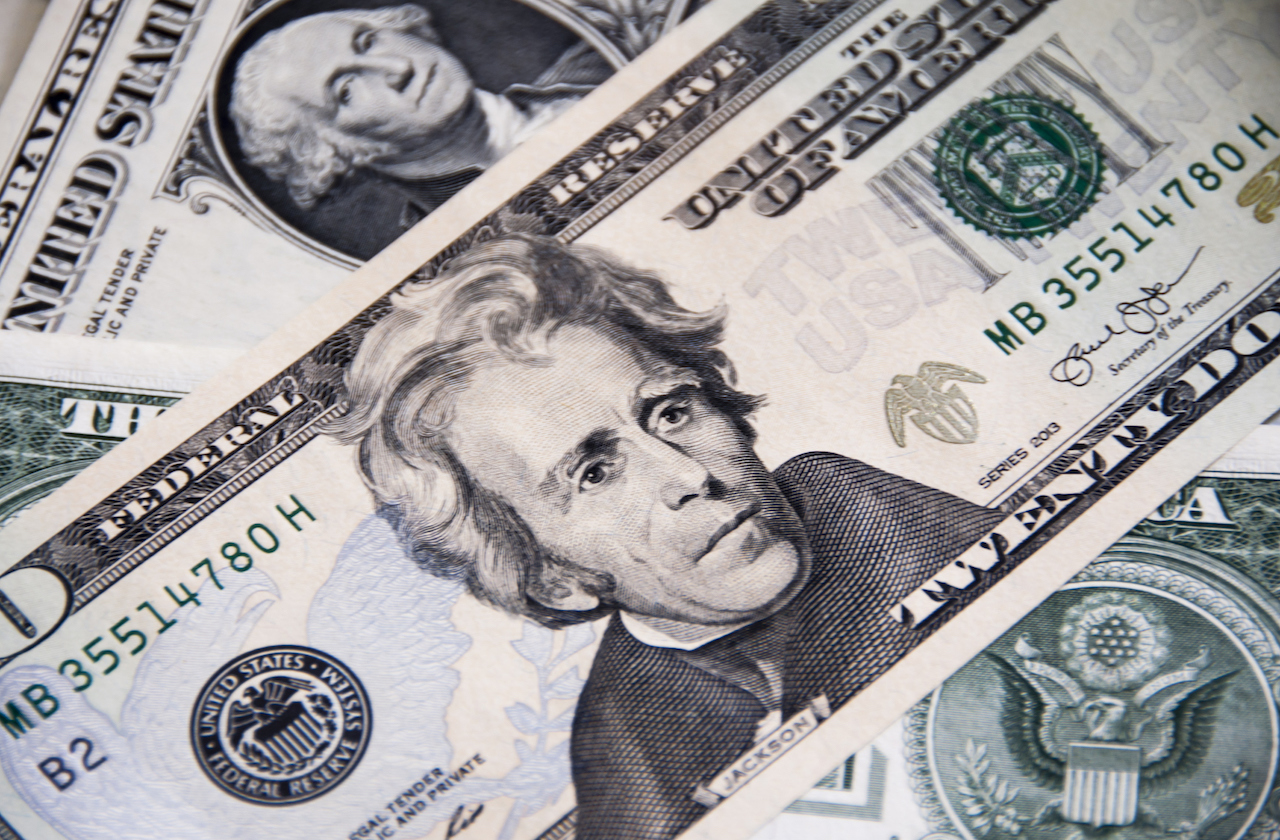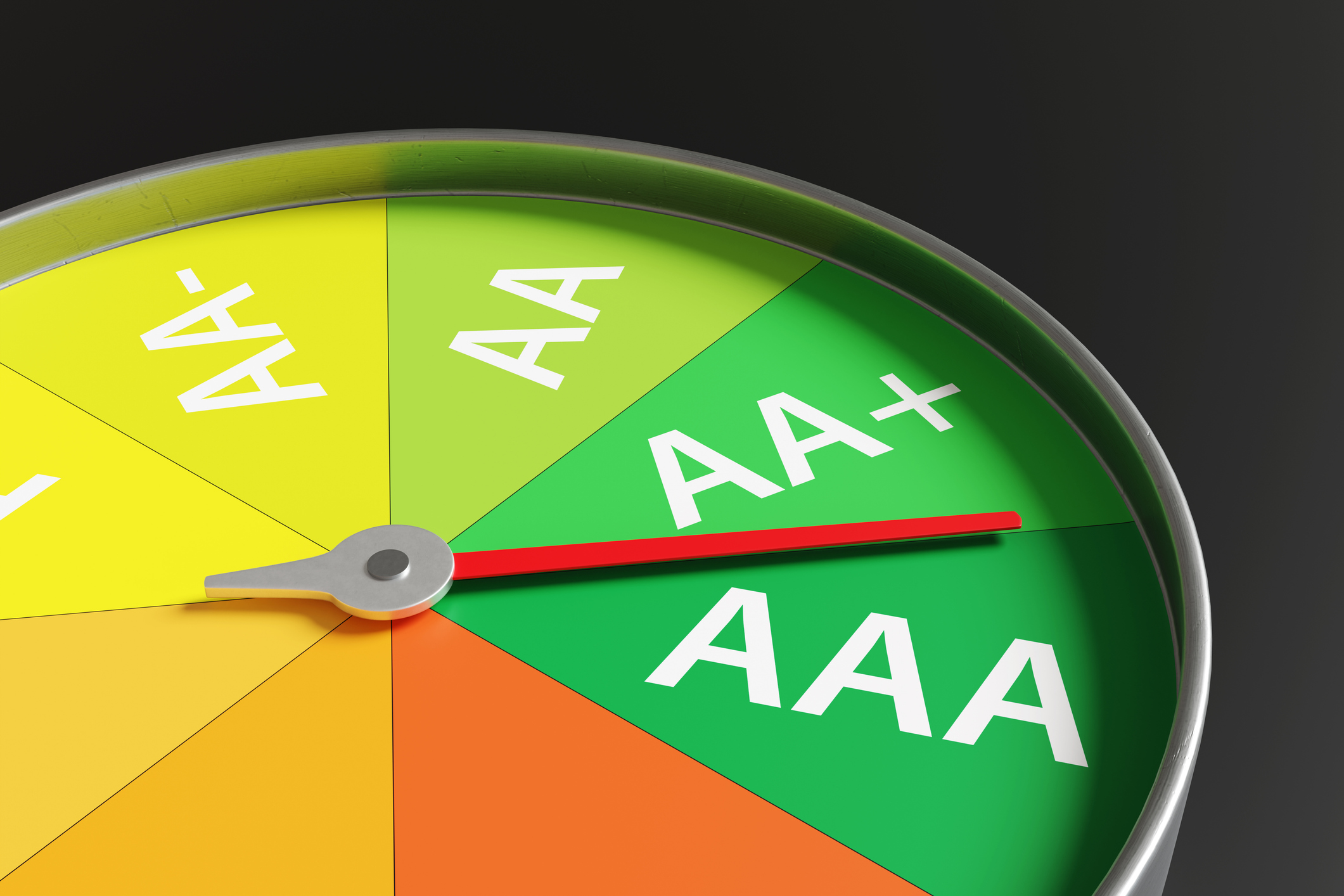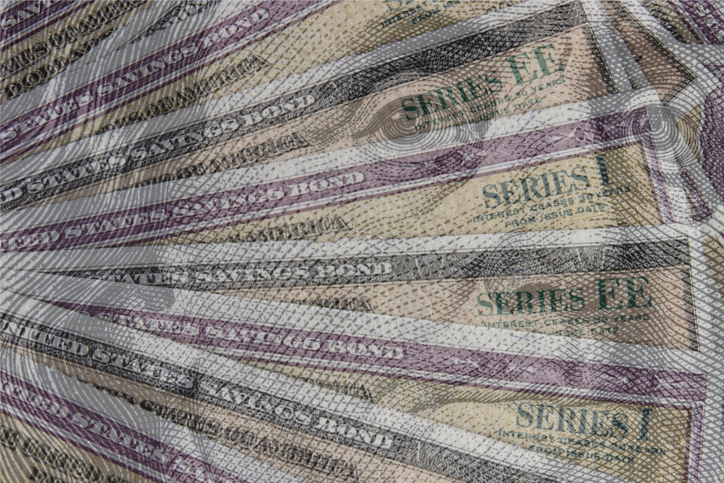5 Cheap Stocks to Buy for $20 or Less
Stocks with low share prices can be a cost-effective way for small investors to diversify their portfolios.


Profit and prosper with the best of Kiplinger's advice on investing, taxes, retirement, personal finance and much more. Delivered daily. Enter your email in the box and click Sign Me Up.
You are now subscribed
Your newsletter sign-up was successful
Want to add more newsletters?

Delivered daily
Kiplinger Today
Profit and prosper with the best of Kiplinger's advice on investing, taxes, retirement, personal finance and much more delivered daily. Smart money moves start here.

Sent five days a week
Kiplinger A Step Ahead
Get practical help to make better financial decisions in your everyday life, from spending to savings on top deals.

Delivered daily
Kiplinger Closing Bell
Get today's biggest financial and investing headlines delivered to your inbox every day the U.S. stock market is open.

Sent twice a week
Kiplinger Adviser Intel
Financial pros across the country share best practices and fresh tactics to preserve and grow your wealth.

Delivered weekly
Kiplinger Tax Tips
Trim your federal and state tax bills with practical tax-planning and tax-cutting strategies.

Sent twice a week
Kiplinger Retirement Tips
Your twice-a-week guide to planning and enjoying a financially secure and richly rewarding retirement

Sent bimonthly.
Kiplinger Adviser Angle
Insights for advisers, wealth managers and other financial professionals.

Sent twice a week
Kiplinger Investing Weekly
Your twice-a-week roundup of promising stocks, funds, companies and industries you should consider, ones you should avoid, and why.

Sent weekly for six weeks
Kiplinger Invest for Retirement
Your step-by-step six-part series on how to invest for retirement, from devising a successful strategy to exactly which investments to choose.
Stocks with low share prices can be a cost-effective way for small investors to diversify their portfolios. But even after a bumpy few days, the market remains near all-time highs and is as expensive as ever, making quality cheap stocks more and more difficult to find.
We're here to help.
Years ago, it wasn't too tough to find stocks for less than $10 that offered an acceptable balance of risk and reward. However, considering the rising tide of the past few years, investors should probably raise that limit to $20, just to be safe. Any stock still languishing below $10 comes with additional risks (as we'll outline later), and can risk losing the benefit of institutional buying from entities such as mutual funds.
It's easy to see the appeal of stocks for $20 or less, especially if you don't have a lot of money left over to invest after you pay bills and pad your emergency fund. However, many low-priced stocks are priced that way for a reason, so you need to be particularly discerning when you try to pick stocks that go for $20 or less.
Is it risky? Sure. Don't plow your life's savings into a stock simply because it seems cheap. But you should take a chance on a promising stock when you can snag it at a bargain price.
Let's take a look at five such cheap stocks trading for $20 or less.
Data is as of Feb. 2, 2018. Dividend yields are calculated by annualizing the most recent quarterly payout and dividing by the share price. Analyst ratings are from Zacks Investment Research. Companies are listed alphabetically.

Callaway Golf Company
- Market value: $1.4 billion
- Dividend yield: 0.3%
- Analysts' opinion: 8 strong buy, 0 buy, 3 hold, 0 sell, 1 strong sell
The game of golf might not be growing like it once was, but it's still a massively popular pastime and a big business. Indeed, there are 24 million golfers in the U.S., contributing to what amounts to a $70 billion global industry.
Shares in Callaway Golf Company (ELY, $14.49) are a low-cost, pure-play bet on the game, and analysts are mostly bullish on its fortunes.
Callaway, for the uninitiated, is a golf equipment, clothing and accessories maker with a reach of more than 70 countries. It's one of the top sponsors in the sport, boasting PGA names such as Phil Mickelson, Henrik Stenson and Sergio Garcia.
Analysts surveyed by Thomson Reuters expect Callaway's earnings to expand by 22% next year and at an average annual rate of 31% for the next five years. That sort of growth makes ELY shares, which currently trade for 24 times expected earnings, look like a bargain.
JPMorgan analyst Steven Zaccone initiated coverage on Callaway in December, rating the stock “Overweight” (equivalent of “Buy”), saying, “Under the leadership of CEO Chip Brewer, Callaway has capitalized on golf industry disruption by investing heavily in R&D and technology, improving brand marketing, and launching innovative products to take market share.”

Graphic Packaging Holding Company
- Market value: $4.9 billion
- Dividend yield: 1.9%
- Analysts' opinion: 7 strong buy, 0 buy, 1 hold, 0 sell, 0 strong sell
- Graphic Packaging Holding Company (GPK, $16.00) is one of the largest makers of folding cartons and paper-based packaging for the food and food-services industries, and a transformative deal has it poised for outsized growth. The company kicked off the year by completing its merger with International Paper's (IP) North America Consumer Packaging business. GPK owns 80% of the combined company.
As a result, analysts now expect the company's revenue to soar 46% in 2018. Longer-term, Wall Street's pros think GPK can deliver average earnings growth of 21% a year for the next half-decade.
With shares going for just 17 times expected earnings, Graphic Packaging could be a steal at current levels.

Huntington Bancshares
- Market value: $17.1 billion
- Dividend yield: 2.7%
- Analysts' opinion: 9 strong buy, 1 buy, 9 hold, 0 sell, 0 strong sell
Regional banks are among stocks that should benefit from Republicans' tax overhaul, as their almost entirely domestic operations have long resulted in high effective tax rates around 30% on average. That will drop to 21%.
Good news for Huntington Bancshares (HBAN, $16.08), which already delivered revenue gains, lower provisions for loan losses and continued growth in both loans and deposits when it posted quarterly results on Jan. 23. Results matched Wall Street's estimates and helped goose a stock that's been hot of late. Shares in Huntington are up 12% over the past month vs. a gain of 4% for the Standard & Poor's 500-stock index.
"The company has a solid franchise in the Midwest and is focused on capitalizing on its growth opportunities," note analysts at Zacks Equity Research, who caution that rising costs and unstable credit metrics pose challenges, but still rate shares at "Buy." "We remain optimistic about the company’s several strategic actions, including acquisitions and consolidation of branches."

Nabors Industries
- Market value: $2.4 billion
- Dividend yield: 2.9%
- Analysts' opinion: 10 strong buy, 0 buy, 8 hold, 0 sell, 0 strong sell
For a higher-risk, higher-reward bet on recovery in the oil patch, look no farther than Nabors Industries (NBR, $7.64) – the only sub-$10 name on this list. Nabors is one of the largest land drillers in the country, and is thus highly sensitive to oil prices.
Happily, for investors, benchmark West Texas Intermediate crude oil prices have climbed from the low $40s in mid-2017 to around $65 per barrel currently. That includes a roughly 10% improvement in so far this year.
Kiplinger’s Economic Outlook thinks prices will cool off from multiyear highs over the next few months. For now, however, higher oil prices will spur producers in the United States and Canada “to drill faster and pump harder.” That bodes well for NBR, which is up roughly 18% for the year-to-date.

SLM Corporation
- Market value: $4.9 billion
- Dividend yield: N/A
- Analysts' opinion: 7 strong buy, 0 buy, 0 hold, 0 sell, 0 strong sell
- SLM Corporation (SLM, $11.48), the student-loan company best-known as Sallie Mae, is on the cusp of a growth spurt, analysts say. That should drive market-beating returns.
Wall Street's experts, on average, forecast revenue growth of 19% this year and 15% in 2019, according to data from Thomson Reuters. Earnings are projected to rise at an average annual rate of nearly 26% over the next half-decade.
“We believe improving economic conditions and lower tax rate will assist Sallie Mae in maintaining its leading position in the student lending market,” Zacks analysts say. Meanwhile, at Credit Suisse, which rates shares at “Outperform,” Moshe Orenbuch and James Ulan believe the company has “superior growth for the next several years.”
With SLM shares trading at less than 10 times expected earnings, it's possible the market still is undervaluing the company’s growth prospects.
Profit and prosper with the best of Kiplinger's advice on investing, taxes, retirement, personal finance and much more. Delivered daily. Enter your email in the box and click Sign Me Up.

Dan Burrows is Kiplinger's senior investing writer, having joined the publication full time in 2016.
A long-time financial journalist, Dan is a veteran of MarketWatch, CBS MoneyWatch, SmartMoney, InvestorPlace, DailyFinance and other tier 1 national publications. He has written for The Wall Street Journal, Bloomberg and Consumer Reports and his stories have appeared in the New York Daily News, the San Jose Mercury News and Investor's Business Daily, among many other outlets. As a senior writer at AOL's DailyFinance, Dan reported market news from the floor of the New York Stock Exchange.
Once upon a time – before his days as a financial reporter and assistant financial editor at legendary fashion trade paper Women's Wear Daily – Dan worked for Spy magazine, scribbled away at Time Inc. and contributed to Maxim magazine back when lad mags were a thing. He's also written for Esquire magazine's Dubious Achievements Awards.
In his current role at Kiplinger, Dan writes about markets and macroeconomics.
Dan holds a bachelor's degree from Oberlin College and a master's degree from Columbia University.
Disclosure: Dan does not trade individual stocks or securities. He is eternally long the U.S equity market, primarily through tax-advantaged accounts.
-
 Over 65? Here's What the New $6K Senior Tax Deduction Means for Medicare IRMAA
Over 65? Here's What the New $6K Senior Tax Deduction Means for Medicare IRMAATax Breaks A new tax deduction for people over age 65 has some thinking about Medicare premiums and MAGI strategy.
-
 U.S. Congress to End Emergency Tax Bill Over $6,000 Senior Deduction and Tip, Overtime Tax Breaks in D.C.
U.S. Congress to End Emergency Tax Bill Over $6,000 Senior Deduction and Tip, Overtime Tax Breaks in D.C.Tax Law Here's how taxpayers can amend their already-filed income tax returns amid a potentially looming legal battle on Capitol Hill.
-
 5 Investing Rules You Can Steal From Millennials
5 Investing Rules You Can Steal From MillennialsMillennials are reshaping the investing landscape. See how the tech-savvy generation is approaching capital markets – and the strategies you can take from them.
-
 The Most Tax-Friendly States for Investing in 2025 (Hint: There Are Two)
The Most Tax-Friendly States for Investing in 2025 (Hint: There Are Two)State Taxes Living in one of these places could lower your 2025 investment taxes — especially if you invest in real estate.
-
 The 24 Cheapest Places To Retire in the US
The 24 Cheapest Places To Retire in the USWhen you're trying to balance a fixed income with an enjoyable retirement, the cost of living is a crucial factor to consider. Is your city the best?
-
 Bond Basics: Zero-Coupon Bonds
Bond Basics: Zero-Coupon Bondsinvesting These investments are attractive only to a select few. Find out if they're right for you.
-
 Bond Basics: How to Reduce the Risks
Bond Basics: How to Reduce the Risksinvesting Bonds have risks you won't find in other types of investments. Find out how to spot risky bonds and how to avoid them.
-
 What's the Difference Between a Bond's Price and Value?
What's the Difference Between a Bond's Price and Value?bonds Bonds are complex. Learning about how to trade them is as important as why to trade them.
-
 Bond Basics: U.S. Agency Bonds
Bond Basics: U.S. Agency Bondsinvesting These investments are close enough to government bonds in terms of safety, but make sure you're aware of the risks.
-
 Bond Ratings and What They Mean
Bond Ratings and What They Meaninvesting Bond ratings measure the creditworthiness of your bond issuer. Understanding bond ratings can help you limit your risk and maximize your yield.
-
 Bond Basics: U.S. Savings Bonds
Bond Basics: U.S. Savings Bondsinvesting U.S. savings bonds are a tax-advantaged way to save for higher education.
